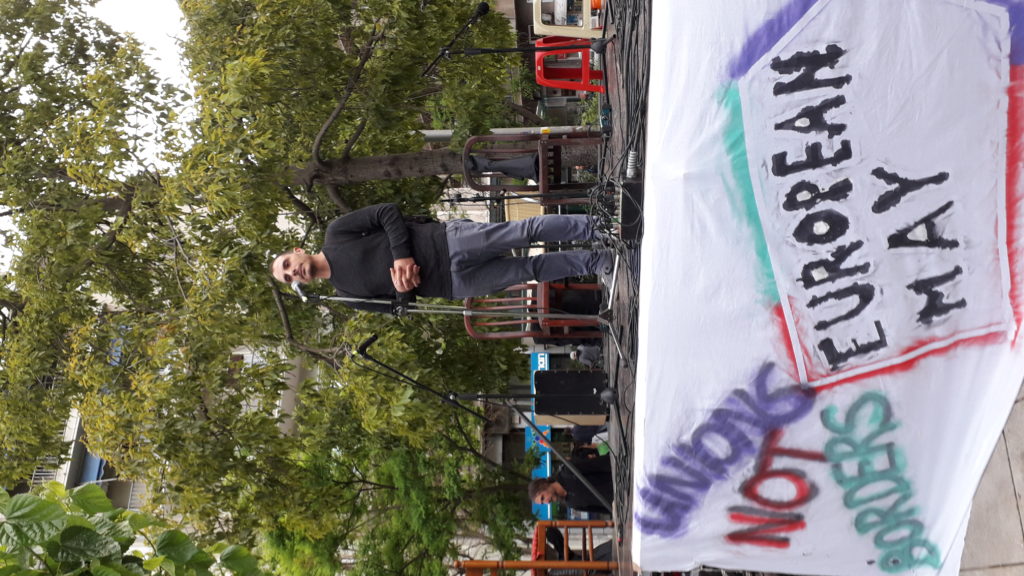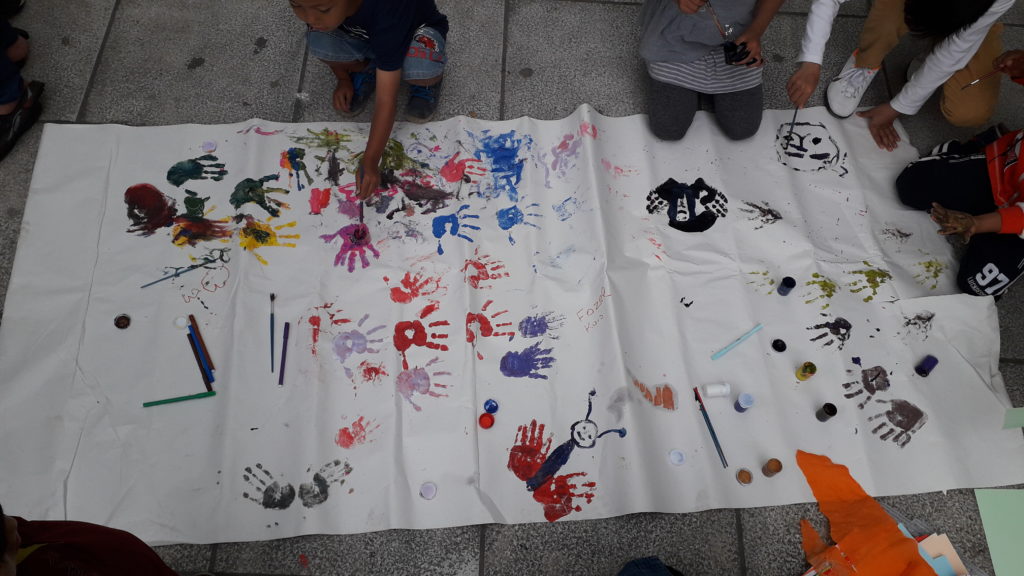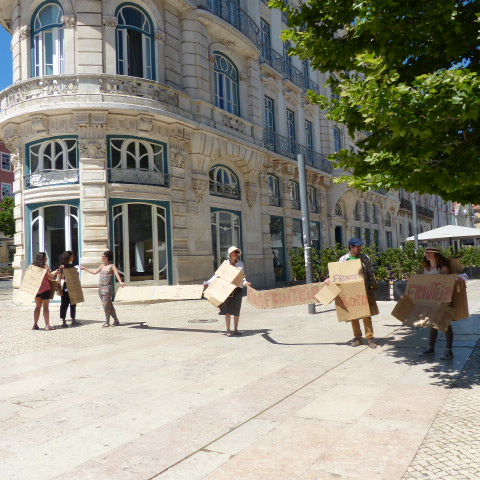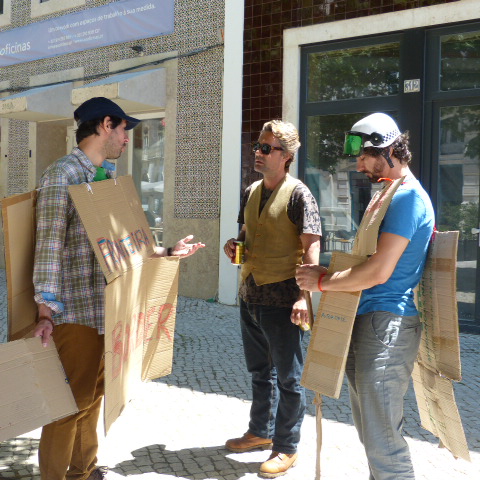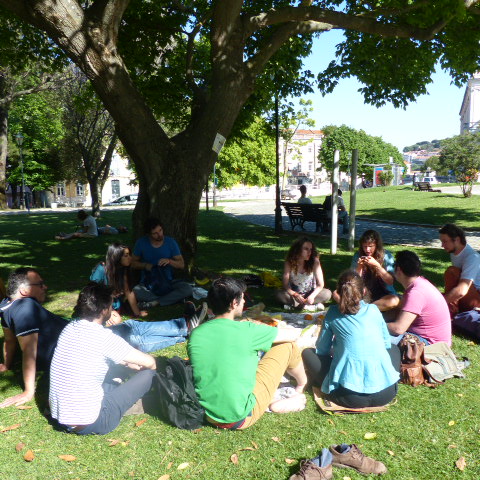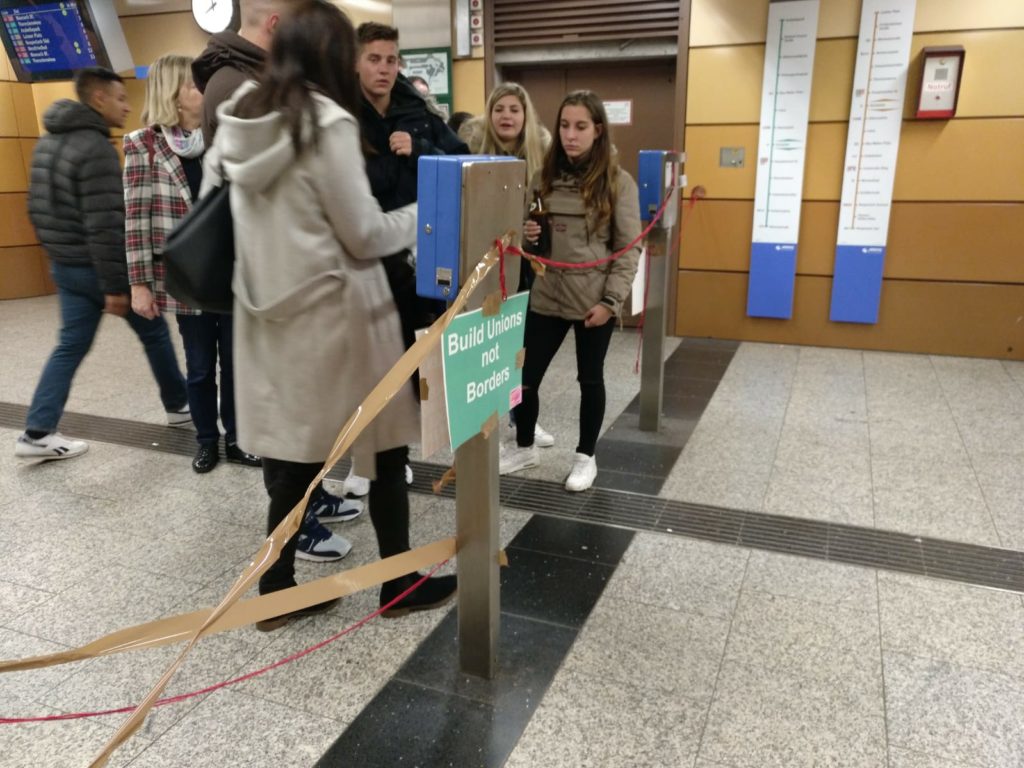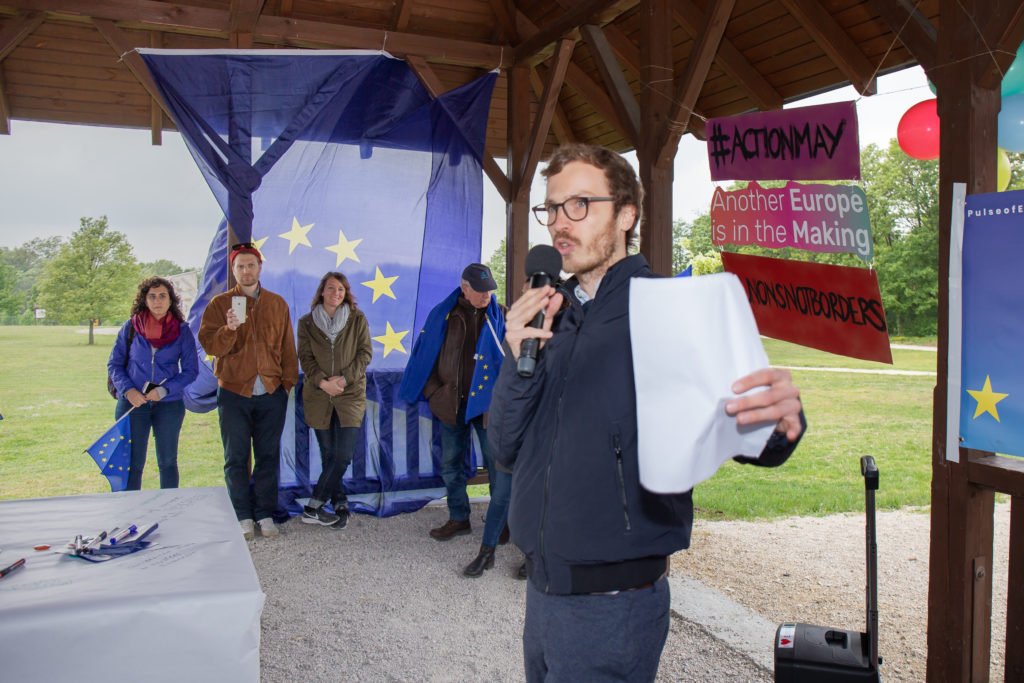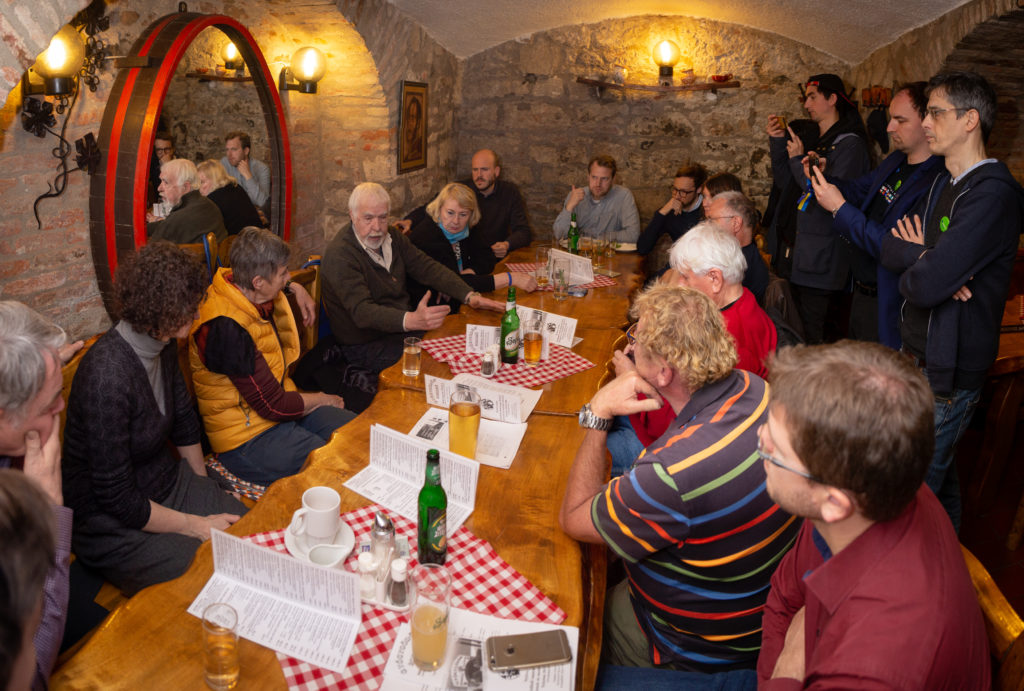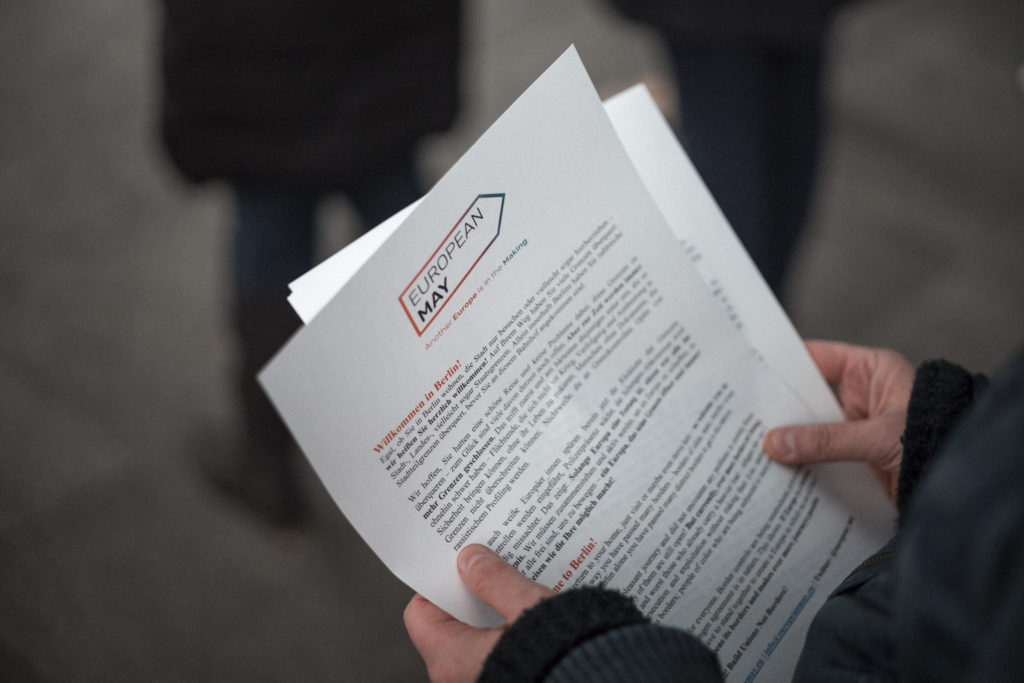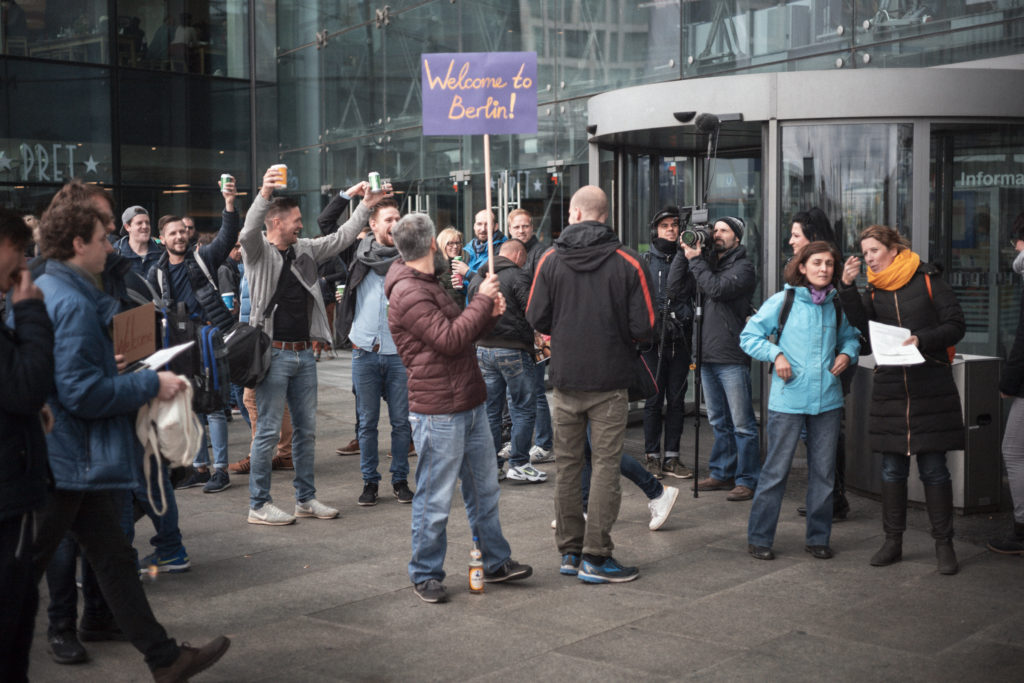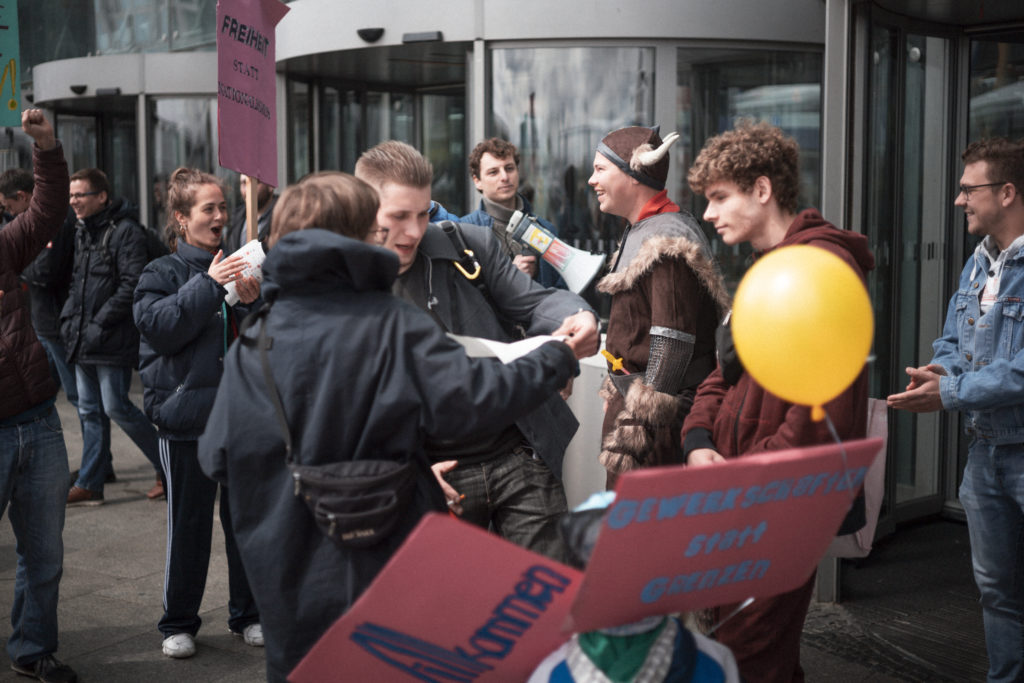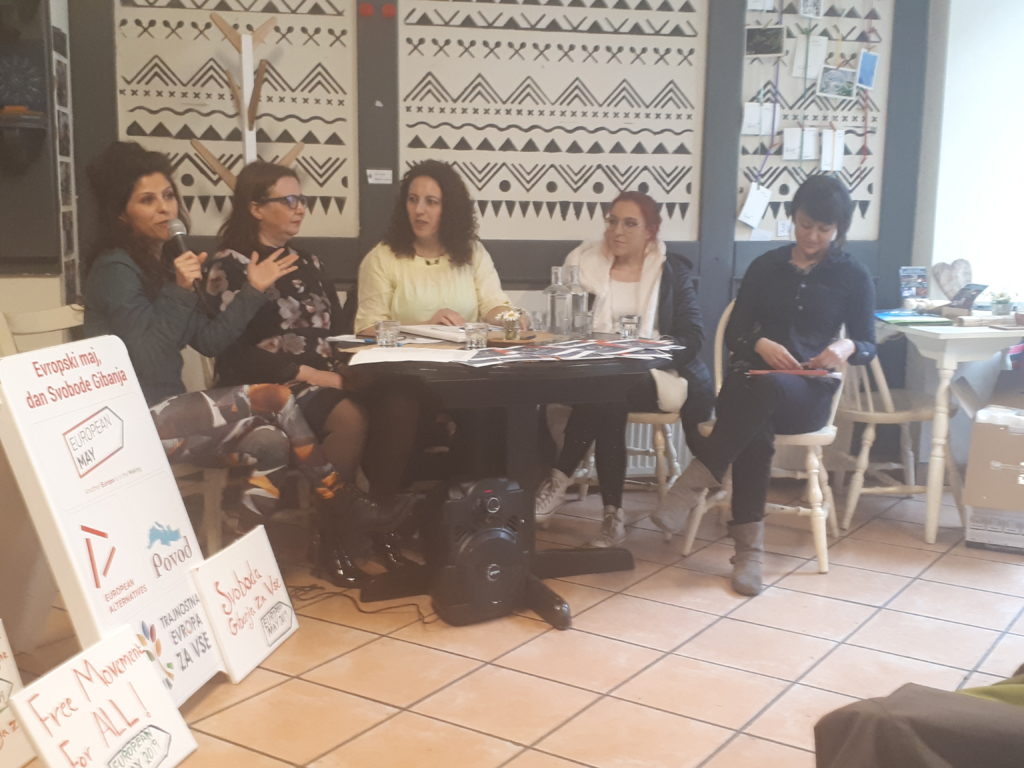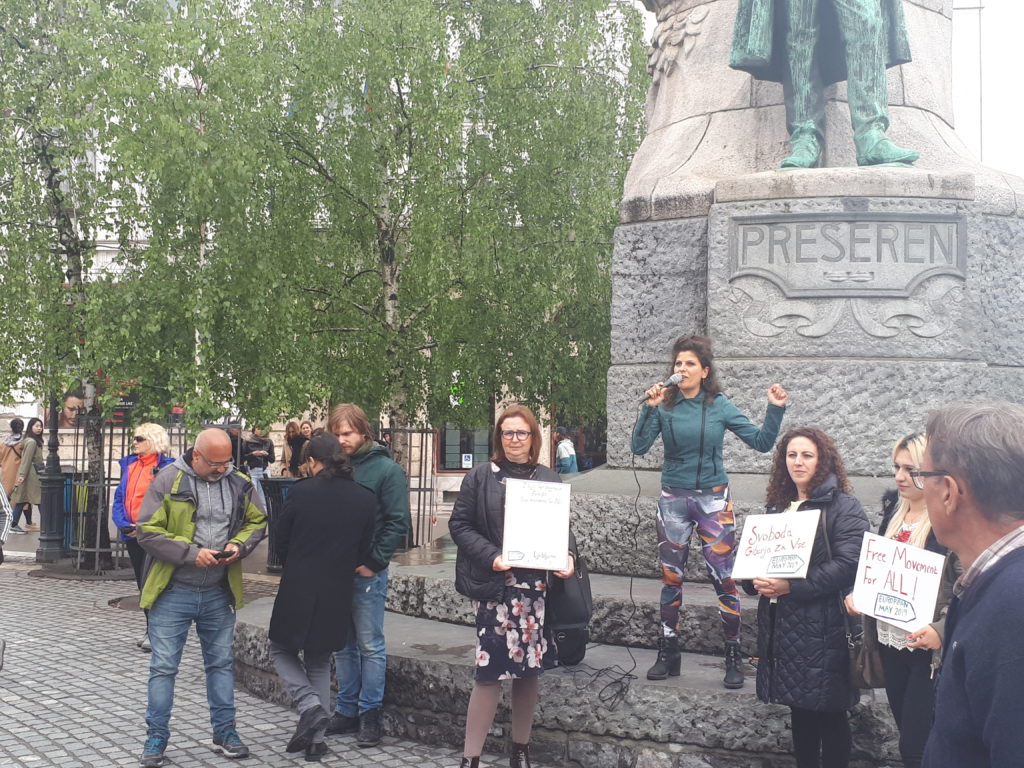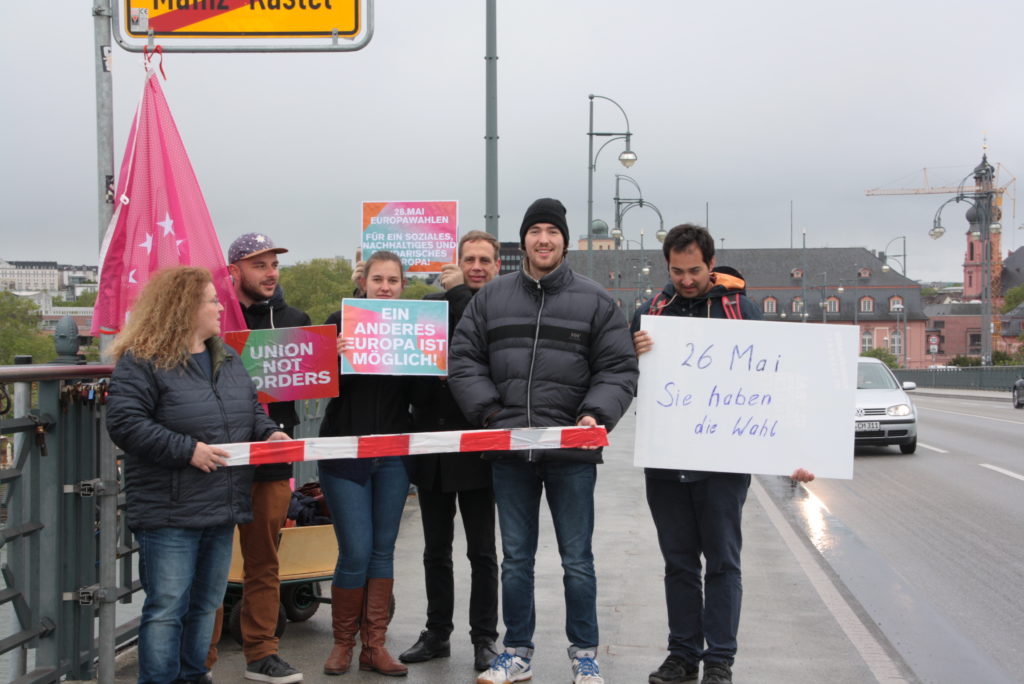May 4 - Free Movement
May 4 - Free Movement
Find out on this page what happened during May 4th – Free Movement Day!
On May 4th, simultaneous actions and demonstrations were organised at symbolically important locations across Europe to declare free movement as a human right, a right for all. No human being chose the place where they were born. Instead, every person should be recognized as having the right to choose where to live and to stay.
European May wants to reclaim free movement, the right we cherish the most in Europe, through creative actions! Concerned europeans demand an end to racial profiling, an end to immigrant detention, and an end to inadequate and inhumane housing provisions for migrants, refugees, and asylum seekers.
Where
?Athens: At Victoria Square, European May activists did not only protest but also handpainted and created protest-shirts. This was followed by a music-session undertaken by Musicarama and the Syrian Greek Youth Forum. The whole event was supported by Inter Alia.
?Austrian-Hungarian Border: Austrian and Hungarian activists gathered at the border, declaring: Solidarity is stronger than hatred and freedom of movement is a human right! Afterwards, in a restaurant in Sopron, they talked with eye-witnesses of the Pan-European Picnic 1989 not only about the common past but also about the common future.
?Berlin: At Berlin Central Station, activists held a welcome-party for everybody arriving there, and linked this to a demand for free movement for all.
?Ljubljana: European May activists organized a poetry-reading in English, Arabic and Slovenian, followed by a musical performance in different languages. In the end, they held an open mic session at Prešeren Square.
?Munich: Activists cordoned off several metro exits, pointing travellers to the importance of free movement.
?Dublin/Irish Border: Given the insecurity due to #Brexit-times, activists in Northern-Ireland took their protest to the Irish Border. The Irish border is a place where even now migrants are being stopped and profiled. They spoke to people at a local picnic site about migration and the need for free movement and shared stories of migration and the need for a more inclusive Europe. In Dublin, European May activists held an action in St Stephen’s Green park. They talked to migrants from all over Europe about the need for widespread change.
?Lisbon: Maio Europeu – European May Portugal created imaginary borders, pointing people to the importance of being able to easily cross them. They blocked people that usually do not suffer from racial profiling and gave them a ‘passport’. This passport contained information on the migrant-situation in Europe nowadays. Later that day, Lisbon activists organized a picnic where people had the opportunity to chat about and discuss migration issues.
?Mainz: European May activists built up border control between Wiesbaden and Mainz and prevented pedestrians from entering the city.
Check out our profile @Instagram.com/europeanmay to see more pictures.
On May 4th, European May declared:
- Freedom of movement is a human right, a right for all: No human being chose the place where they were born. Instead, every person should be recognized as having the right to choose where to live and to stay.
- We are all migrants: Everybody moves around whether it is a matter of choice, necessity or survival. Free movement has been under threat since the crisis of hospitality in Europe broke in 2015, with people fleeing war and poverty being inhumanely detained, refused asylum, or deported back to their home country. Worse, the crisis is also instrumentalized to limit and restrict free movement within Europe, affecting also European citizens, especially those of colour as well as EU citizens’ third country family members.
- Everyone moving around should see their fundamental rights guaranteed: freedom of movement does not only imply the right to employment and to make a living where one resides. The rights to entry and residence are always accompanied by the right to access justice, to housing, to healthcare, to unemployment, that are necessary for people moving around to plan a new, safe life wherever they live.
- Europe has a historical responsibility for refugees and migrants in need, and this responsibility includes ensuring they are safe: the current attitude of the European decision makers could be described as ‘out of sight, out of mind’. If the migrants are not arriving on the European territory, or do not die on the European side of the sea, then it is not its responsibility. We declare this way of thinking as profoundly wrong and we have a responsibility as host or indigenous communities to welcome those in danger.
- Anyone actively standing for freedom of movement, should be imprisoned or criminalised as a result of their claims: The recent trends of criminalising humanitarian organisations rescuing migrants in the Mediterranean Sea, such as SOS Méditerannée, should be clearly condemned and denounced. Immigration detentions centers or any kind of structure welcoming refugees should be unconditionally accessible for civil society members and for journalists.
